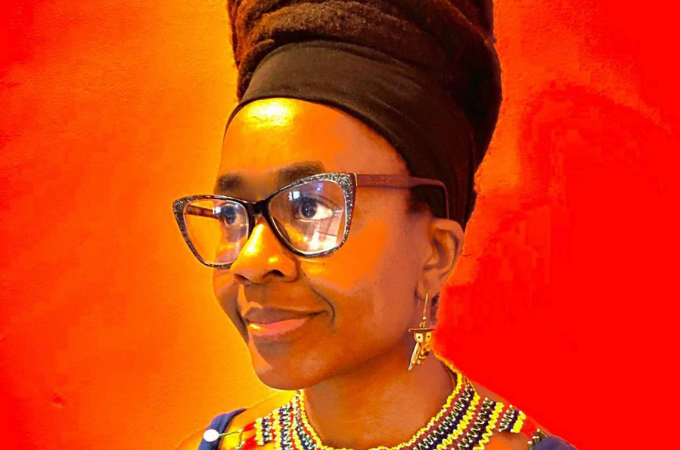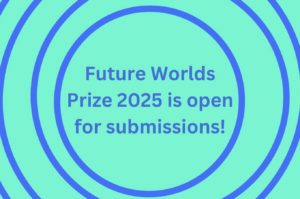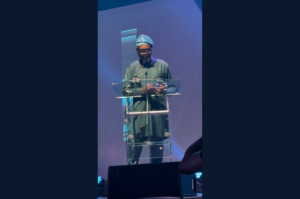
Celebrated Nigerian author Nnedi Okorafor recently caught up with the Canadian indie pop artist Grimes to talk about literature, music, and the ever-increasing synergy between technology and humanity.
The conversation was held courtesy of Atmos. Atmos is a biannual magazine and digital platform that explores climate and culture. The magazine is curated by “a global ecosystem of artists, activists, and writers devoted to ecological and social justice, creative storytelling, and re-enchantment with the natural world.”
Grimes, a passionate advocate for climate change, who was until recently married to billionaire Elon Musk, is no doubt better equipped than most to speculate on humanity’s future. Okorafor’s award-wining works, including LaGuardia and Who Fears Death, build futuristic world s that tell important stories and give us a hint of sorts to advancement.
The duo—Grimes and Okorafor—seem a perfect match to go over questions of creative renaissance, technology, and, most importantly, the place of science fiction in projecting and predicting our collective future.
Read some of our favorite excerpts from the conversation below:
Nnedi on Sci-fi and Spirituality:
I started writing fantasy that was linked to a lot of my ancestral cultural beliefs, Ebo culture. I wasn’t even calling it fantasy. And then, when I started writing science fiction, it was a natural link because the greatest technology is nature. When you look at human advancement in technology, it’s very easy to see how it will eventually link up with spirituality because it’s just naturally going in that direction. And this idea of those two things being separate has always been weird to me.
And so when I wrote Who Fears Death—it’s funny because people call it fantasy. And I’m like, “It’s not fantasy. How are you not calling that science fiction?” But that’s because the spiritual aspects in the narrative overshadow the technology, and people see the two as separate. And I’m just like, “No, this is in the future. This is the future. And we’re at a point where technology has gone far, and then the spiritual and the mystical have returned. And they’re coming together.”
Grimes on Sci-fi and Spirituality:
When I read Novacene by James Lovelock, I felt like it was the best representation of a spirituality that I could vibe with. He talks about how the dawning of human consciousness is the universe itself waking up, how us becoming conscious is the universe actually becoming aware of herself. And when you think about the fact that, as far as we know, there’s nothing else out there, it seems incredibly profound and beautiful that we might be the nexus point where the universe is becoming conscious, where nothing has become something. I feel like with the internet and everything, what’s happening is that we’re all becoming individual neurons in some kind of super brain. And I can’t help but feel like there’s this super-intelligence developing where we’re all these individual parts of it. And the universe is its body. I’ve never felt more spiritual than when I’m doing math, because it feels so perfect and beautiful and designed. It’s so hard to feel like there isn’t some designer or some super-profound thing developing from nothing.
Nnedi on Science and storytelling:
That is definitely something that I’ve explored. In my Binti series, the main character is a mathematical genius. And she can do this thing called “treeing,” which is basically math as mysticism. She uses complex and beautiful mathematical equations to achieve a trance-like state where she can harness the energies of the Earth. And that comes from the idea of math. Math in its perfection, in its profoundness, being the path to the mystical. And so it just makes sense.
Grimes on Science:
I think the fact that religion has often been averse to the scientific method has turned people off of spirituality. It really comes down to people wanting things to be black and white and people wanting to simplify things. We’ve been like, “Well, Christianity sucks and it doesn’t abide by science, so obviously this is invalid.” But we’re invalidating a topic or field of study based on previous iterations that maybe didn’t pan out or maybe didn’t abide by logic. And I wonder if that’s the smartest move right now. I would love to see more application of the scientific method to more spiritual pursuits.
Read the full conversation here.









COMMENTS -
Reader Interactions